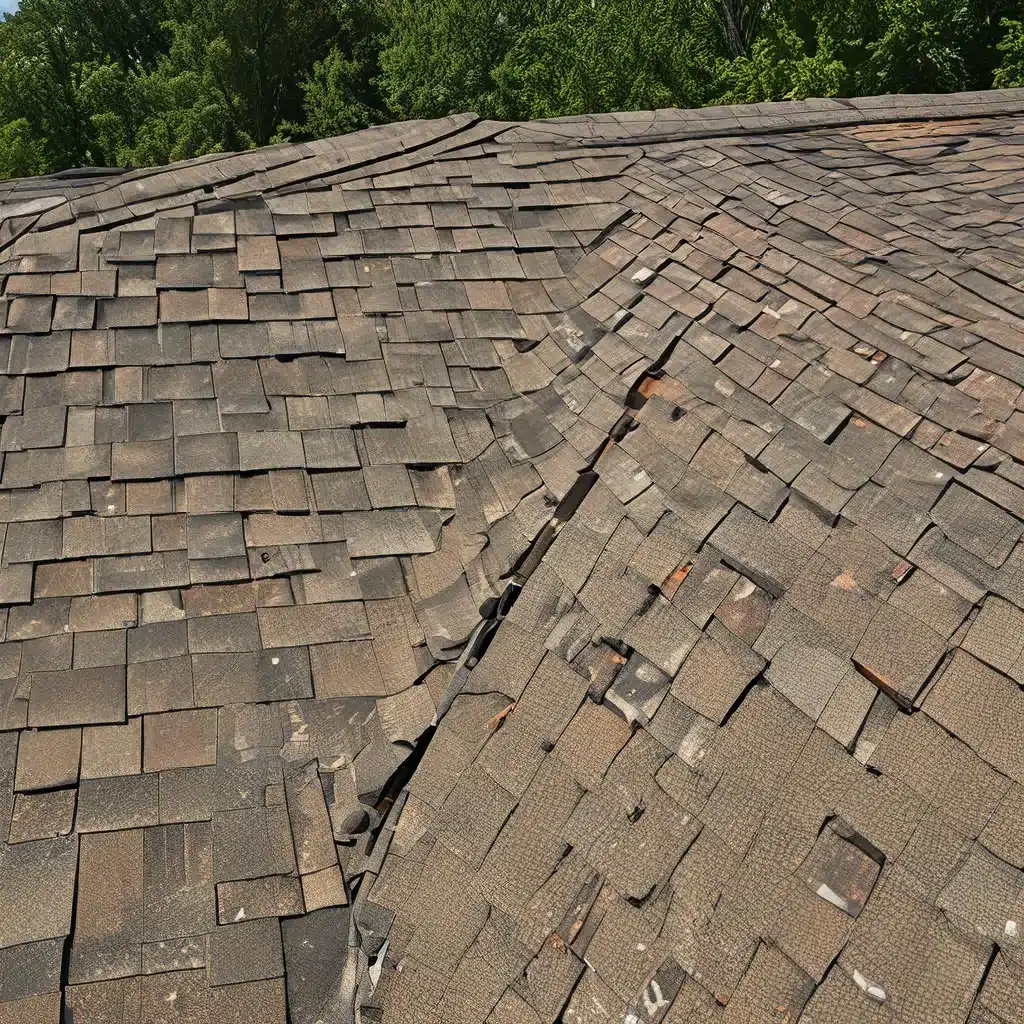
Uncovering the Surprising Link Between Your Roof and Your Tax Bill
As a proud homeowner, I’ve always been passionate about maintaining the integrity of my abode. From meticulously manicuring the lawn to tackling those pesky repairs, I take great pride in keeping my property in tip-top shape. But recently, I stumbled upon a revelation that caught me off guard – the decision to replace my roof could have a significant impact on my property taxes.
“Wait, what?” I thought to myself. “How can a new roof affect my tax bill?” Well, my friends, the answers lie in the complex world of property assessments and local tax policies. It’s a topic that deserves our attention, as it can have profound implications on our wallets and the overall value of our homes.
Roof Replacement and Property Value: The Double-Edged Sword
When it comes to the relationship between a new roof and property taxes, it all boils down to one key factor: property value. You see, a roof replacement is often viewed as a major home improvement, one that can significantly enhance the aesthetics and functionality of your abode. And in the eyes of the tax assessor, these enhancements translate to a higher perceived value for your property.
Imagine your home as a vintage sports car – sure, it may have character and charm, but that old, worn-out roof is like a rusted-out fender. Now, picture that same car with a gleaming new paint job and a sleek, shiny exterior. Suddenly, it’s a much more appealing and valuable asset, isn’t it? The same principle applies to your home.
PACE financing, a program that allows property owners to receive upfront funding for qualifying improvements like roof replacements, can further complicate the matter. While PACE can be a convenient option, it’s essential to understand that the financing is recorded as an assessment on your property, meaning it takes precedence over your mortgage in the event of a default.
The Tax Tightrope: Navigating the Complexities
So, how exactly does a new roof impact your property taxes? Well, it’s a bit of a balancing act. When your home’s value increases due to the roof replacement, the local tax assessor will take note and adjust your property’s assessed value accordingly. And as we all know, a higher assessed value typically translates to a higher tax bill.
But here’s the tricky part: the degree to which your taxes will increase can vary significantly depending on where you live. You see, different municipalities have their own set of rules and regulations when it comes to property taxes. Some areas may be more lenient, offering tax exemptions or special considerations for roof replacements, while others may be more stringent, resulting in a more substantial tax hike.
It’s a bit like navigating a minefield – you never quite know what to expect. But fear not, my fellow homeowners, for there are strategies you can employ to minimize the tax impact of your new roof.
Strategies to Offset the Tax Burden
Timing is everything when it comes to managing the tax implications of a roof replacement. Ideally, you’ll want to time your roof project to occur after the annual property assessment. This way, you can enjoy the benefits of your new roof for almost a full year before the tax assessor takes it into account.
Another clever tactic is to opt for energy-efficient roofing materials. Many regions offer tax incentives or rebates for homeowners who choose eco-friendly options, which can help offset the potential increase in your property taxes. It’s a win-win scenario – you get to enjoy a more sustainable roof while potentially saving some cash on your tax bill.
And let’s not forget the importance of understanding your local regulations. Some areas may have specific exemptions or special considerations for roof replacements, particularly if the work is deemed a necessary repair rather than an improvement. By doing your research and staying informed, you can navigate the complex world of property taxes with confidence.
The Roof Replacement Dilemma: To Replace or Not to Replace?
Now, I know what you’re thinking – “But wait, does this mean I should just forego the roof replacement altogether?” Not necessarily, my friends. A new roof can do wonders for the overall value and functionality of your home, and the benefits often outweigh the potential tax implications.
Think about it this way: a well-maintained roof not only enhances your home’s curb appeal but also protects your family from the elements and can even improve energy efficiency. And let’s not forget the peace of mind that comes with knowing your home is safe and secure.
The key is to approach the decision with a well-rounded perspective. Weigh the pros and cons, explore your financing options, and work closely with your local roofing professionals to ensure you make the best choice for your unique situation.
Embrace the Uncertainty, Empower Yourself
As I’ve delved deeper into this topic, I’ve come to realize that the relationship between roof replacements and property taxes is anything but straightforward. There are so many variables at play, from local regulations to individual property assessments, that it can be downright dizzying to navigate.
But you know what? That’s okay. Uncertainty is a natural part of life, and when it comes to managing our homes and finances, it’s important to embrace it with an open mind and a willingness to learn.
By staying informed, exploring our options, and working closely with trusted experts, we can empower ourselves to make the best decisions for our homes and our wallets. After all, knowledge is power, and in the ever-evolving world of property taxes and home improvements, that power can make all the difference.
So, as you embark on your own roof replacement journey, remember to approach it with a curious spirit and a commitment to understanding the nuances. Who knows, you might just uncover a few surprises along the way – and maybe even a few ways to outsmart the tax man.